
Dzanc Books now offers electronic versions of John's first four books: the story collections Bedlam and Highway Trade, and the novels Talking Heads: 77 and Earthquake I.D. Bedlam, John's first title, includes a new author's preface and two stories that have never before appeared in any collection.
John strongly supports independent bookstores, and recommends readers do the same. Otherwise, the books remain available on Amazon and elsewhere.
Current projects include a new novel and a selection of criticism, Caliban's Cry: On a Literature Unhoused.
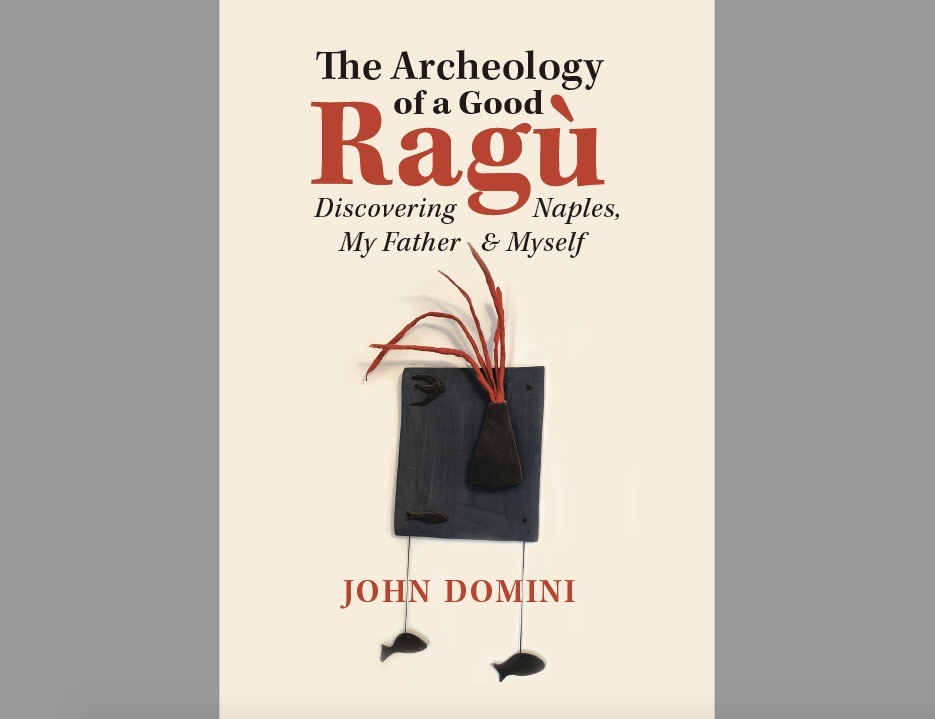
John's newest book is a memoir, The Archeology of a Good Ragù, which explores his recovery from crises of midlife, via his initmate experience of Naples, his father's hometown. He uncovers secrets out of the last World War, comes to know the city's entrenched criminality, and expands his notion of love.
Bon Shacochis (National Book Award), praised the "magic and sensuality," and other blurbs included Laura Van den Berg and Lawrence Osborne. The publisher is Guernica World Editions, and the book was a finalist for the Big Other award in non-fiction.
"The writing glows like Vesuvius aflame," claimed Jacob Appel, in Brooklyn Rail. "A nuanced mystery... superbly rendered," wrote David Capella in Rain Taxi. In American Book Review, Robert Shuster said the memoir "mixed fine-tuned perception" and "punchier" qualities. George Guida, in Ovunque Siamo, liked how Domini "unearths the truth... with energy and insight." Vincent Czyz, in Artfuse, praised the memoir as "unique... deftly written." A substantial excerpt, adapted, appeared in Lit Hub. In Brevity, John's reflected on how he came to compose the book, and there was another complimentary review ("a great pleasure").
The Iowa NPR station interviewed John at length about the book. Another talk, more extensive, was with the Chills at Will podcast (on Apple).
Other good notices, with interviews, appeared in Heavy Feather Review ("wondrous," "mind-bending") and Vol. 1 Brooklyn ("seamless," "memorable"), Stat0Rec ("evocative and entertaining"), and in ArLiJo.
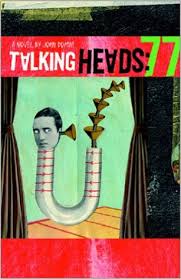
John's first novel, Talking Heads: 77 brings to vivid life the period when that famous record appeared. In the late '70s, in Boston, an ambitious young man has spent his last dollar and exploited all his connections to start a new "journal of politics & opinion."Its first issue plunges him into terrible new challenges, from strains on his marriage to a riot in a state prison.
In 2024, Arkadia Editore will publish the novel in Italy, translated by Alessandra Ceccoli.
Tom Simmons, Des Moines Register: "a very fine novel...written with flashy, pop-culture inventiveness.... Nevertheless, this book reminds one of nothing so much as Hawthorne."
Dean Poling, Valdosta Daily Times: "Domini manages to say much about the truth, media, and society.... unloads smart observations... with elements of mystery and suspense."
"John Domini has brilliantly turned one of literary fiction's neatest tricks: he has vividly... evoked a past time and milieu—the alternative cultural scene of the mid-70s—and in the process he has illuminated our own times with dazzling clarity. Talking Heads: 77 also manages to be both cutting-edge innovative and splendidly readable. This book is a flat-out delight."
—Robert Olen Butler, Pulitzer Prize, 1993
"Talking Heads: 77 reminds us of a generation's crushing loss of idealism. ...John Domini captures the kind of innocence it once took to believe in our quixotic convictions....."
—Cris Mazza, author of Girl Beside Him
"Talking Heads: 77 is a bravura performance.... It nearly pops at the seams with a rich and diverse cast of characters including a drugged-out denizen of the deep, the idealistic editor of a political rag, a pony- riding Boston Brahmin intent on finding herself and shedding her husband, an up and coming punkster who fancies evenings at the Knights of Columbus Ladies Auxilary, an editorial assistant named Topsy Otaka, a single mother with problems, corrupt politicos, you name it. Full of warmth and humor,Talking Heads: 77 is a rollicking ride of a read. Enjoy."
—Frances Sherwood author of The Book of Splendor
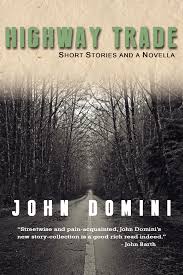
John's second set of stories is set entirely in Oregon, out by the Pacific, and among former city-dwellers from back East. The stories first appeared in Threepenny Review and elsewhere, and feature characters who came across the country chasing a dream and now have wound up lost and floundering. The book won an Ingram-Merrill Foundation grant.
Phil Presby, Rain Taxi: "Fantastically tender... very fine pieces of short fiction. Domini [demonstrates] a willingness to cross boundaries... he powers of imagination coalesce and run."
Michael Brennan. The Oregonian: "The stories achieve a powerful effect as they paint succinct and compelling portraits of offbeat souls.... The good, the bad, and the ugly of these characters come to life ...Domini works with a keen and compassionate mind."
Norah Vincent, New York Times Book Review: "prose poems... swirling... grab hold of both readers and characters."
"Streetwise and pain-acquainted, John Domini's new story-collection is a good rich read indeed." —John Barth
"His lonely, hard-boiled outsider figures, women as well as men, are shrewd, wary observers of the predatory scene around them, but keep their fierce loves to themselves." —Jaimy Gordon
"These stories... reveal as vividly as any in recent fiction the unresolvable tension in American life between being settled and rootless.... In a foggy valley brimming with everything right and wrong about our country, ...characters waver between generosity and good old-fashioned American self-interest.... Domini's is an urgent voice, edgy wild, important." —Tracy Daugherty
"John Domini's densely textured stories teem with compelling inner and outer life. They move swiftly and sinuously, emerging from the everyday to coil around a reader's heart." —Floyd Skloot
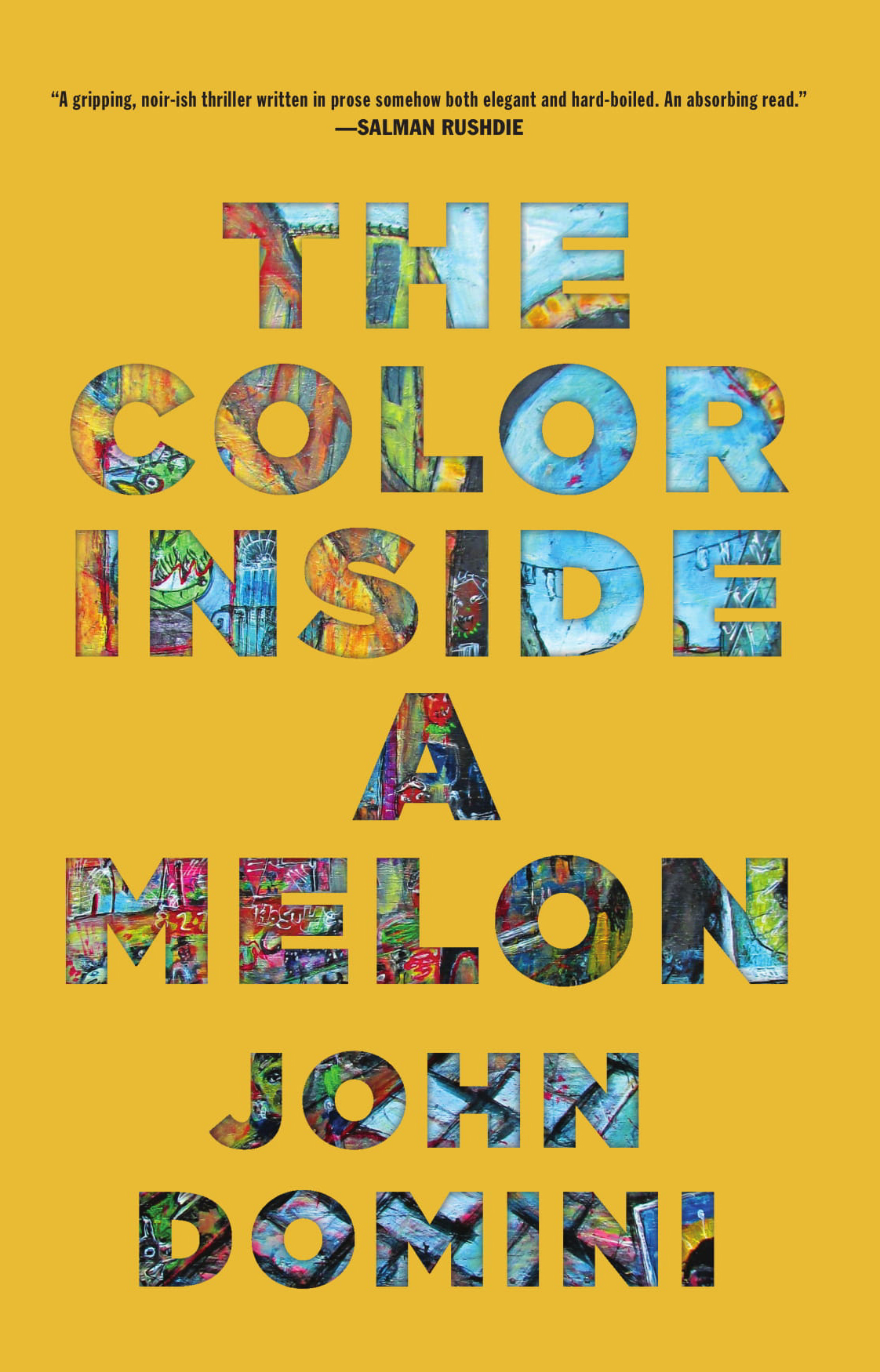
John's latest novel is an immigrant story, a murder mystery, a portrait of a marriage at risk, and an exploration of both cutting-edge arts and the sexual demimonde. The book stands on its own, while also completing the Naples trilogy that began with Earthquake I.D.
Published on Dzanc Books in summer, 2019, the novel was one of two to win Honorable Mention in the 2019 Book Award from the Italian American Studies Association. The Brooklyn Rail listed it as one of the best books of the year.
Writers who committed blurbs included Salman Rushdie and Marlon James, Booker winners. Excerpts appeared in Conjunctions, Entropy, Del Sol Review, and elsewhere.
In the Washington Post, esteemed critic Mark Athitakis called the novel “sagely genre-tweaking,” “spry,” and “especially well-turned.” The Millions hailed it as "stunning" and "poetic."
Another rave appeared in Brooklyn Rail: "stylized, artful, and heroic." The Nervous Breakdown claimed "Domini is at the peak of his game." In Kirkus, the book was praised as “brisk,” “intriguing,” and “often elegant.”
A wide-ranging interview appeared in Fiction Writers Review; the introduction deemed the book "sharp, witty, and suspenseful." The Millions and Writeliving blog also ran interviews, calling the novel "dazzling" and "timely." Another, in print only, in RainTaxi, declared it "far-reaching.
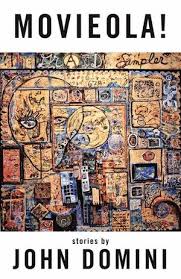
John's latest set of stories, MOVIEOLA! is on Dzanc. An Italian translation is now availiable on Jona Editore, as the first in their series "Gli Americani."
Blurbs came from David Shields, Sam Lipsyte, and others. The stories originally appeared in Conjunctions and elsewhere.
Vanity Fair, June 2016, raised MOVIEOLA! as "thoroughly entertaining" in its "Hot Type" column. That same month, Chicago Tribune listed it as one of "30 Books You Should Read this Summer," and BBC Culture named it one of "ten books to devour."
An essay-review in The Millions, by J.C. Hallman, hailed MOVIEOLA! as an "amplification" of Woody Allen and Nathanael West: "a new shriek for a new century."
Another long appreciation, by John Madera in the Brooklyn Rail, called the book "a bravura performance" from "a writer producing his best work."
On i-Italy TV, Fred Gardaphe has marvelous video review: "If Pirandello were writing about Hollywood, I imagine he'd channel John Domini."
The Rumpus: "feverishly exuberant... both highly visual and incredibly verbal." The Nervous Breakdown: "prose recalls Nabokov..., the words at times tap dancing and somersaulting." Autre; "madcap satire, ...cuturally and psychologically acute."
Entropy: "hybrid story creatures… a fascination." Quarterly Conversation: "breezy… confident… shrewd." Pleiades: "quick-witted … breathtaking." The Literary Review: "celebrates the grit and rhythm of the written word, all while.. capturing the magic of... the big screen." VIA: "a wild romp."
Grub Street and Brooklyn Rail each ran smart interviews, Necessary Fiction a brief piece about the book's inspiration, and Largehearted Boy a playlist.
On the Pertinent Links page, there's both a video of a reading and a podcast interview.
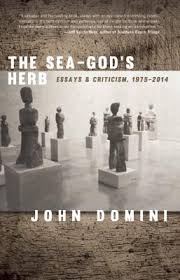
The Sea-God's Herb, 2014, selects from John's criticism and reviews, published in the New York Times and elsewhere. The long opener, "Against the 'Impossible to Explain:' the Postmodern Novel & Society," got special attention on HTMLGiant and elsewhere. The text covers many areas of culture, but its focus is on litearture.
Publishers' Weekly: Sea-God's Herb is "poetic" and "fascinating."
J.C. Hallman, Brooklyn Rail, describes one of John's essays as "a thing of beauty," and praised the book as "often charming and ultimately important."
Tom Verso, i-Italy, calls Sea-God's Herb "a significant study of postmodern Americana, and a must read for students of American culture."
Eric Basso, Bicycle Review, says the book is "exemplary" and full of "brilliant interpretation."
David Atkinson, InDigest, praises the "multifaceted approach," the "elaboration and contemplation."
The Sea-God's Herb also received interview-reviews, in The Believer, Rain Taxi, and InDigest. The Largehearted Boy site had John contribute a "Book Notes" playlist.
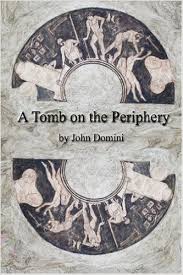
John's 2008 novel returns to the troubled Naples of Earthquake I.D., with a fiction part crime story, part ghost story, part coming of age, part redemption song, and more. Gival Press selected the manuscript as runner-up for their national award. It's available in all formats.
Tom Verso calls A Tomb on the Periphery"absolutely brilliant," a "proverbial page-turner," and a "crime novel... with all the elements of high literature," the sensitive essay-review is on Il Regno.
In 2010 A Tomb on the Periphery made the short list for "the best of international publishing" at the London Book Festival.
Aaron Plesak, in The Collagist. "No object encountered is neutral... we are reminded how a tiny item or gesture may conjure the past... the pleasure is in discovering the characters."
Fred Gardaphe in Frai Noi: "a thoroughly engaging story that stays true to its characters... Domini gets it and gets it right."
Fred Misurella in VIA: "tremendous entertainment value as well as literary heft... A novel of energy and intelligence."
Jason Pettus reviewed Tomb for the Chicago Center for Literature & Photography, comparing the work to Michael Chabon and Cormac McCarthy: "stunning... a fabled rare book."
Bookslut.com, Michael Madison: "Tomb on the Periphery takes the trappings of noir then transcends the genre... lush and generous."
Linda Lappin in GentlyReadLiterature.com: "a flash of authentic Naples.... Extraordinary energy and plasticity... startles, stabs, tickles and at times dazzles."
Dennis Barone, Italian Americana: "Domini's writing might be called projectile-prose. ...he demonstrates a lively, generous mind in action through swift moving, sonorous language."
Janyce Stefan-Cole, Main Street Rag: "As in Orhan Pamuk... The reader is transported to ancient times and modern plights, ...while wrapped up in a suspenseful tale."
Lew Diuguid and Johns Hopkins Magazine, "Shelf Life:" "As the sauce thickens... all of the characters take on texture...."
Matt Miller in Des Moines Cityview: "Fabrizzio is caught between his morals and his impulses... A fast-paced crime novel with a little romance." Other brief reviews in The Iowan and Bostonia.
Italian publication is under contract with Tullio Pironti Editore.
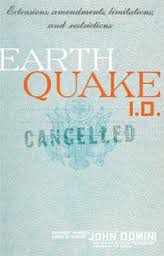
The first novel in John's Naples sequence, published in '07, Earthquake I.D. was nominated for a Pulitzer. Richard Ford, an earlier Pulitzer winner, called it "a wonderful novel of an old-fashioned sort...a rich feast." Steve Erickson, author of Zeroville, called Domini "a writer of the world, with a deft talent for negotiating the currents of our age."
The Italian translation, titled Terremoto Napoletano, was runner-up for the Domenico Rea prize, in Italy. A panel of six judges selected the finalists.
In Italy, John's translator was Stefano Manferlotti, and the press Tullio Pironti Editore, the first Italian house to publish Don DeLillo. Terremoto Napoletano was praised in La Repubblica as "dense with surprises... with so many stories and characters knit together." In Il Mattino, Fabrizio Coscia called it: "a voyage of initiation... that seduces and wounds... Refined, visionary, and alert to paradox." In Roma, Marco Catizone wrote: "captures all the subversive possibilities of language in a kaleidoscope of vibrant sound and image."
American Book Review, Ryan McCray: "mines the intersection between contrasts...to show how extremes bring out our truest forms.... Touching, as good as anything in Talking Heads: 77."
Thomas Burke, in a long review for The Literary Review: "a dramatic narrative of cosmopolitan ideas -- social commentary as it should be... a very well told story."
Jason Pettus, Chicago Center for Literature and Photography, gives the the novel 9.5 stars out of 10: "I'm in the presence of greatness... one of the best-written books of our times."
Fred Gardpahe, Fra Noi: "A well focused plot tightly wound... Enough mystery to keep the pages turning while telling a contemporary story that can touch us all."
The Emerging Writers Network, in a four-star review, calls it "a great, jam-packed novel." Bostonia praised how "surprises abound in the political intrigue."
Artscene Iowa described it as "extraordinary... tightly woven," and added "Domini has a knack for creating striking moments... and finds a route toward the essential nature of families."
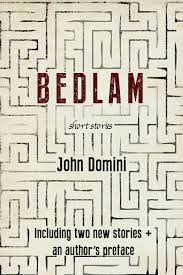
The electronic edition, on Dzanc Books, includes two published stories left out of the original, plus a new introduction by the author.
Kathleen Hirsch, in Boston Phoenix: "remarkably resourceful stories, studded with small gems... protean... the realism is stretched taut between legitimatized social violence and deep and genuine pity. ...the fantasy is artfully sketched, its resolution a deeper humanity."
Richard Orodenker, in North American Review: "Impressive... Domini's characters must take flight, return, or escape, [but] learn to deal with the complicated mysteries of the "inner self." ...Domini's vision is a hopeful one... with more than just a little music."
"An impressive first collection. Domini's voice is engaging, insistent, earnest, curious, unsentimental but compassionate."
—John Barth
"Fantastical forays into a literary land populated by such comic-philosophic devils and angels as those found in Stanley Elkin, Donald Barthelme, and Max Apple. They warble with incantations, lamentations, orations; they sparkle with craftsmanship."
—Richard Price
"Short stories characterized by energy, originality, and daring. The energy is, to quote a line from his own work, 'a musical triumph that [is] almost violent.' Indeed, violence lurks just outside the door or in the next room; but it is never allowed to disrupt the subtlety...."
—Stephen Minot
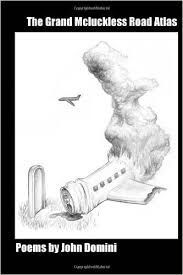
John's first book of poetry, The Grand McLuckless Road Atlas, is out now on Pedestrian Press/Bicycle Review. A chapbook, Grand McLuckless selects from about a decade of John's poetry, and includes a prize-winner. Both print and electronic editions are available.
Blas Falconer calls the book "full of wit and music."
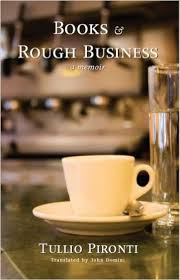
John's translation of Tullio Pironti's memoir, Books & Rough Business, is on Red Hen Press. In Italy, the memoir received over 100 reviews, and plans are in place for a movie adaptation.
George Guida, Italian Americana: "Pironti’s memoir goes beyond cultural history and guidebook. It offers an insider’s perspective ...on Italy’s continuing quest for functionality as a nation.... It tells the story of a man, his city, and his country coming of age...."

Contact John Domini
John welcomes word from readers and thinkers: dominijohn51 at gmail dot com.
In 2021 appeared John's 10th book, a memoir, The Archeology of a Good Ragù. Praise came in Brooklyn Rail and elsewhere. Earlier he published four novels, the most recent The Color Inside a Melon, 2019, with blurbs from Salman Rushdie and others. The novel was listed among the year's best. Set in Naples, Italy, it completes a loose trilogy that began with Earthquake I.D. He also has three books of stories, the latest MOVIEOLA! The Millions called this "a new shriek for a new century."
His books have appeared in Italian, and he's done translation himself. He's appeared in anthologies, in all genres, and in Paris Review, New York Times, and other places. Grants include an NEA Fellowship and an Iowa Major Artist Award.
He's taught at Harvard, Northwestern, and elsewhere, and lives in Des Moines with the science fiction writer Lettie Prell.
Photo credit: Camille Renee.